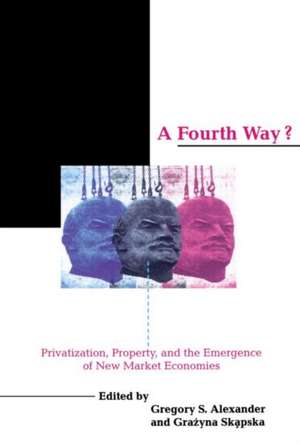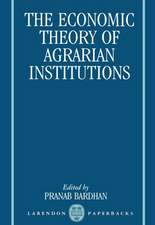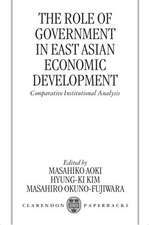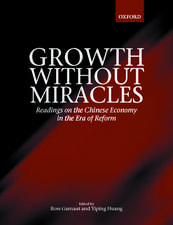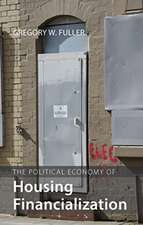A Fourth Way?: Privatization, Property, and the Emergence of New Market Economies
Editat de Gregory S. Alexander, Grazyna Skapskaen Limba Engleză Paperback – 6 dec 1993
Preț: 318.91 lei
Nou
61.03€ • 63.48$ • 50.38£
Carte tipărită la comandă
Livrare economică 14-28 aprilie
Specificații
ISBN-10: 0415906989
Pagini: 360
Dimensiuni: 152 x 229 mm
Greutate: 0.67 kg
Ediția:New.
Editura: Taylor & Francis
Colecția Routledge
Locul publicării:Oxford, United Kingdom
Notă biografică
Cuprins
Descriere
This collection on the privatization of property ownership seeks to explore the middle ground between state socialism and corporate capitalism. A Fourth Way? examines the transition to market economies in post-Communist Eastern Europe and considers Western experiences with alternative forms of ownership. The contributors to this study argue that neither the market alone nor state planning is adequate, in economic or moral terms, as the exclusive means to regulate the economy. Several essays focus on the impediments to the transition to market economies in Poland, Hungary and Germany. Others consider the problems of active participation, self-governance and domination involved in some forms of private ownership. The editors propose a new conception of property, and the possibility of a fourth way that mediates between classical liberalism and state socialism. They discuss new modes of ownership in the context of housing, industrial property and other areas of social life which avoid the unfortunate connotations associated in the past with the notion of a third way.
